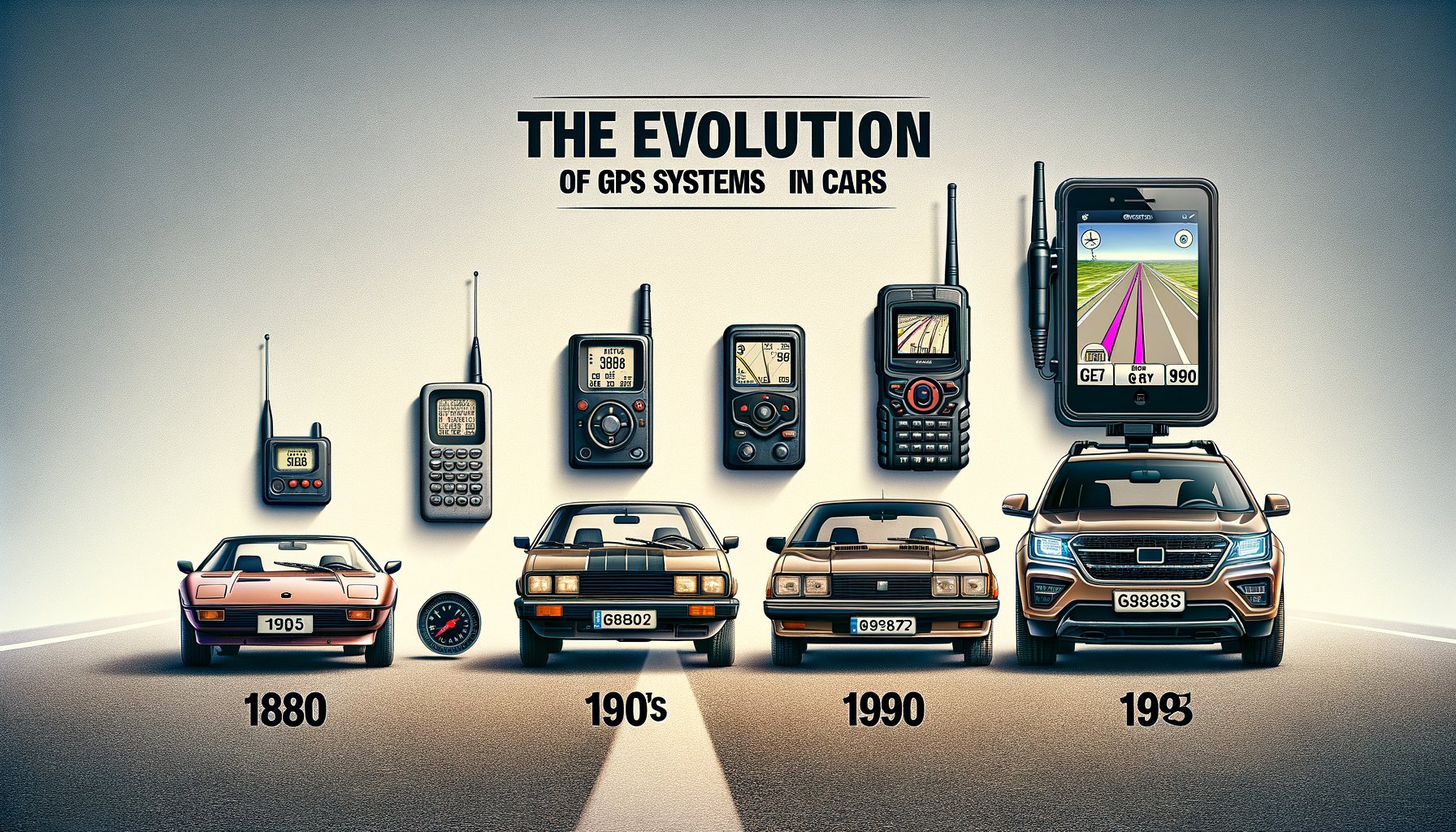Physical Address
304 North Cardinal St.
Dorchester Center, MA 02124
Physical Address
304 North Cardinal St.
Dorchester Center, MA 02124

The advent of Global Positioning System (GPS) technology has revolutionised the automotive industry, transforming how we navigate our world. From its rudimentary beginnings to its current state-of-the-art iterations, the journey of GPS systems in cars is a fascinating study in technological advancement. In this article, we’ll delve into the evolution of GPS systems in cars and explore how they have become an integral part of our driving experience.
The genesis of GPS can be traced back to the 1960s when the U.S. Department of Defense developed a satellite-based navigation system for military use. Named NAVSTAR (Navigation System with Timing and Ranging), it wasn’t until 1983 that President Ronald Reagan announced that this technology would be made available for civilian use.
However, it took another decade before GPS technology found its way into automobiles. The first car-based GPS system was introduced by Mazda in 1990 as an optional feature for their Eunos Cosmo model. This primitive system used a compact disc loaded with maps and combined with a receiver to provide directions.
In the late 1990s, digital mapping started gaining momentum with companies like Garmin, TomTom, and Magellan leading the way. These standalone GPS devices offered turn-by-turn voice instructions – a significant leap from their CD-ROM counterparts.
As digital mapping technologies improved, so did their integration into vehicles. Automakers began incorporating built-in GPS systems as standard features in luxury models during the early 2000s. These early integrated systems were often cumbersome to use due to complex interfaces and slow response times but marked an important step towards seamless vehicle navigation.
The launch of the first iPhone in 2007 and the subsequent rise of smartphones heralded a new era for GPS technology. With built-in GPS capabilities, smartphones quickly became the preferred navigation tool for many drivers. Apps like Google Maps and Apple Maps offered real-time traffic updates, route suggestions, and point-of-interest searches – features that were not available in most built-in car GPS systems.
The advent of connected cars has further enhanced the utility of GPS systems. Modern vehicles are equipped with advanced telematics systems that offer real-time data transmission between vehicles and infrastructures. This allows for more accurate traffic information, predictive navigation, and even autonomous driving capabilities.
Today’s GPS systems also integrate with other vehicle technologies to improve safety and efficiency. For example, Adaptive Cruise Control can use GPS data to adjust speed based on upcoming road conditions such as curves or hills. Similarly, Predictive Powertrain Control uses topographical GPS data to optimise fuel consumption.
The future of GPS in cars is intrinsically linked with the development of autonomous vehicles. Self-driving cars rely heavily on precise positioning information provided by advanced GPS systems combined with other sensors like lidar, radar, and cameras.
Companies such as Tesla are already using high-precision GPS combined with detailed maps to enable their Autopilot feature. Meanwhile, tech companies like Google’s Waymo are developing their own high-definition mapping systems powered by machine learning algorithms to improve accuracy and reliability.
In conclusion,
The evolution of GPS systems in cars is a testament to our relentless pursuit of technological advancement. From basic navigational aids to enabling self-driving capabilities, these systems have come a long way over the past few decades. As we move towards a future where autonomous vehicles become commonplace, it’s exciting to imagine what the next chapter in this evolution will look like.